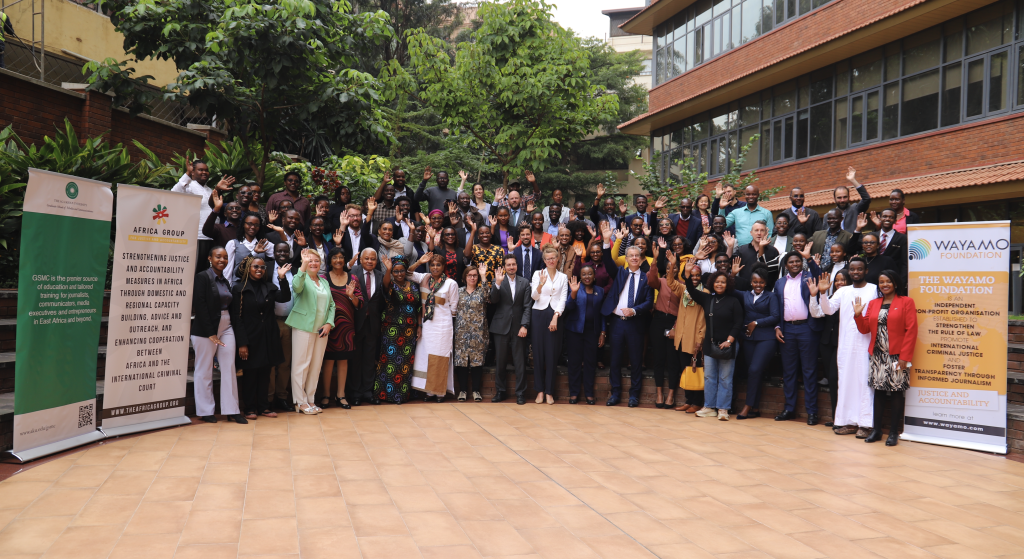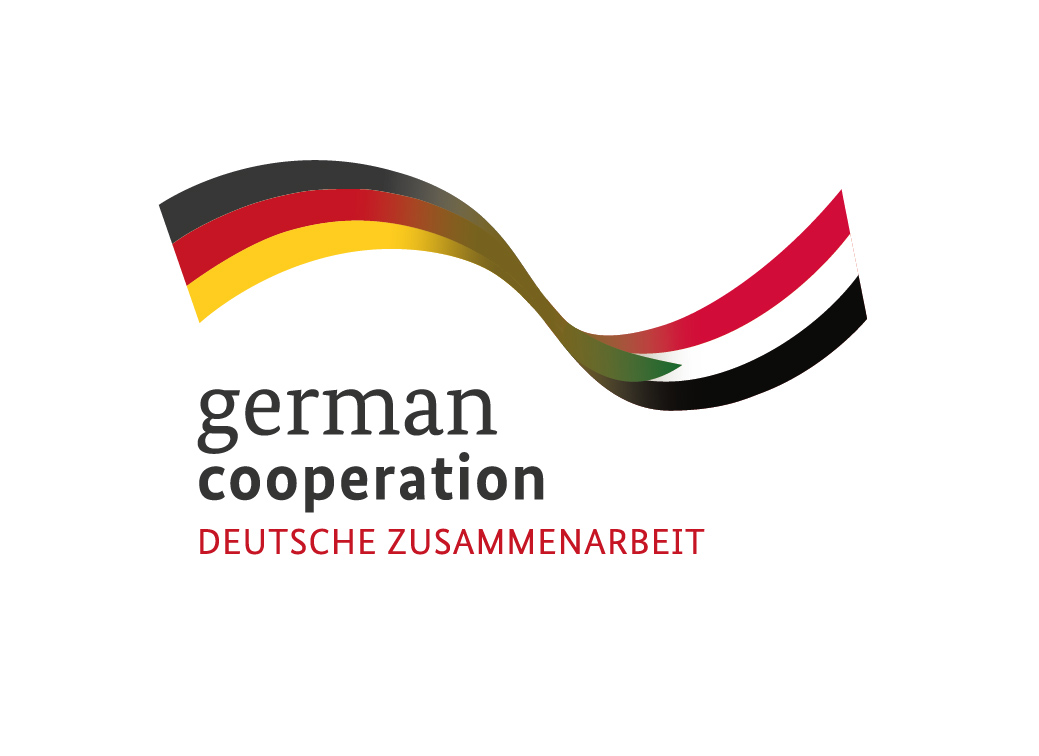International justice symposium: Transition from where? Transition to what? Exploring transitional justice efforts in an ever-changing world
With the financial support of the German Federal Foreign Office and the Ministry of Foreign Affairs of the Netherlands.
19 May 2023, Nairobi, Kenya.
Click here for the symposium pictures and here for all the video recordings of the panel discussions.
Recognising that human rights violations are being committed on a daily basis in Sudan, the Wayamo Foundation, the Africa Group for Justice and Accountability (AGJA) and the Aga Khan University Graduate School of Media and Communication hosted a public symposium on transitional justice and international criminal law on 19 May 2023, in Nairobi, Kenya.
The symposium brought together high-level regional and international experts as well as transitional justice and international criminal law advocates from Kenya in a forum for respectful and spirited discussion and debate. The proceedings were opened by Prof. Nancy Booker, Associate Professor and Interim Dean at the Aga Khan University Graduate School of Media and Communications, who welcomed all the participants to the day’s event. She emphasised the important role played by media actors in reporting on human rights violations, and the steps being taken by her university to address this issue in its curriculum. In her opening remarks, Wayamo Foundation Director, Bettina Ambach, observed, “Everything changed on 15 April, when the armed conflict between the two generals broke out. All of our local colleagues and partners are now in a struggle for survival. I want to take a moment to acknowledge that what we have been and will be discussing here in Nairobi is not merely academic: it matters to people on the ground in Sudan right now, who are caught in a spiral of violence.”

Fatiha Serour, former Deputy Special Representative of the UN Secretary General in Somalia and AGJA Chairperson, stated, “Those who have been violated —whether through sexual violence or other forms of abuse— are not always able to access a court to testify about human rights violations and seek justice. That’s why we need transitional justice with its multi-dimensional potential for serving victims and survivors.” Zainab Bangura, Director-General of the UN Office at Nairobi (UNON), gave an inspiring speech to Sudanese civil society actors, urging them to continue to fight for a democratic, civilian-led Sudan.

The joint Wayamo-AGJA conference explored timely and pressing issues regarding the tools available to states and affected communities to address past atrocities and ongoing human rights violations. The symposium’s opening session, entitled “An ongoing obligation: the continuing importance of accountability in Sudan”, featured Sudanese guest speakers, Moneim Adam, Access to Justice Programme Director, Gisa INC, and Gouja Ahmed, Sudan Communications and Logistics Officer, Wayamo Foundation. In a recorded video intervention, Mr. Ahmed gave an emotional and moving account of the events that were currently unfolding in Darfur, which brought many in the auditorium to tears. In his speech, he urged all those present to stand in solidarity with the Sudanese people and join efforts in the pursuit of peace and accountability in the country.

Over ninety participants drawn from Kenyan and Sudanese civil society organisations, the Kenya Bar Association, media representatives from Kenya and the Sudanese diaspora, the diplomatic corps, and law and international relations students from various Nairobi universities took part in the symposium. Spanning three panels and one conversation, the symposium addressed topics which included, transitional justice in a transitioning world, focusing on recent geopolitical, international and legal changes in the transitional justice field, opportunities and challenges in the collection of evidence of mass atrocities, the prosecution of international crimes in domestic courts, and lastly, the renewed momentum in international criminal law and concerns about double standards. The rich and diverse panel of speakers included Catherine Marchi-Uhel, Head of the International, Impartial and Independent Mechanism for Syria (IIIM), Nema Milaninia, Special Advisor to the U.S. Ambassador-at-Large for Global Criminal Justice, Tabitha Ouya, Head of the Civil Rights Division, Office of the Director of Public Prosecutions, Kenya, and members of AGJA, a group of high-level African experts on international criminal law and human rights, among others. (Click here for the programme and a full list of speakers and panels).

A few key observations made by the panellists were: the positive trend in transitional justice mechanisms towards stressing the inclusion of victims and local ownership; the emphasis on reparations, and the truism that there is no justice without reparations; the importance of ensuring that investigative work is not done in silos, and that space is reserved for combining traditional and new technologies such as digital open-source information. Further observations included: the need to view justice from a holistic and comprehensive perspective, which includes justice efforts at an international, regional and domestic level; and the importance of focusing on sexual and gender-based violence, something that is sadly all too common in conflict situations but is not addressed comprehensively.
The last panel’s closing discussion on double standards and how to achieve greater equality in the distribution of justice for international crimes left the participants with the following powerful words ringing in their ears, “Let us create our own standards and make them work!”

With an eye on current events in Sudan, the Wayamo Foundation hosted a series of events from 17-20 May 2023 in Nairobi, Kenya.

